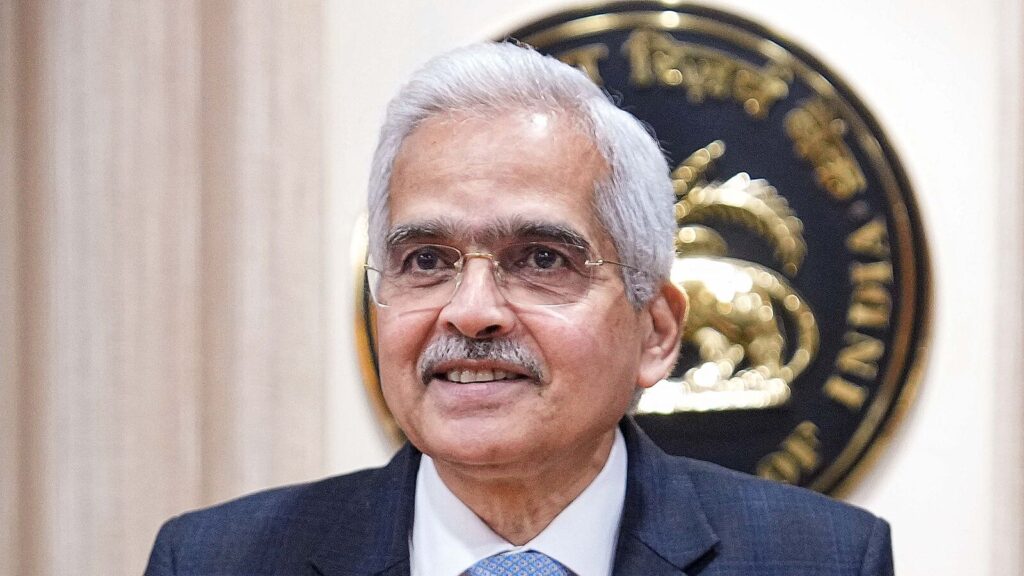MPC more confident about inflation aligning to 4% target by next year: minutes

Members of the central bank’s policy-setting panel are increasingly confident about inflation aligning with its target, even as they do not want to fritter away hard-won gains with an early rate cut. Minutes of the committee’s latest meeting reveal the reasons for the caution: Unpredictable geo-politics, commodity prices, and weather.
The six-member monetary policy committee kept the policy rate unchanged at 6.5% on 9 October, while switching the policy stance to neutral from ‘withdrawal of accommodation’, the first such shift in two years. While five members voted to keep rates unchanged, all six backed the change of stance.
“The balance between inflation and growth is well-poised. Despite the near-term uptick in inflation, the outlook for headline inflation towards the later part of the year and early next year points to further alignment with the 4% target,” said Shaktikanta Das, governor, Reserve Bank of India. “At this stage of the economic cycle, having come so far, we cannot risk another bout of inflation,” he added, according to the minutes of the meeting released on Wednesday.
Retail inflation in September accelerated to its highest in nine months at 5.49% primarily due to higher food prices, data released after the MPC meeting showed. The central bank’s medium-term inflation target is 4%, with a tolerance band of 2% on either side. At a fireside chat organized by Bloomberg later, Das cautioned that rate cuts at this stage would be “premature” and risky, puncturing market hopes of a cut in December.
Confidence raised
The panel’s external member Saugata Bhattacharya agreed that declining household inflation has raised confidence about reining in inflation. “The arduous battle against inflation is far from won, but we are more confident of eventual success in bringing CPI inflation durably closer to the target. One important reason for this confidence is that household inflation expectations remain well-anchored and have trended lower in the latest survey round.”
With inflation projected at 4.8% in the third quarter, many economists have revised their rate cut expectations to February next year. In a recent speech, RBI deputy governor and MPC member Michael Patra said that inflation is expected to average 4.5% in FY25, before aligning with the target on a durable basis in FY26.
This was also the first meeting of the six-member panel after half the members were newly appointed.
On growth, the committee members were divided. The central bank has projected GDP growth outlook for FY25 at 7.2%. External member Nagesh Kumar, who also voted for a rate cut, argued that industrial demand is flagging domestically and globally, which is hurting private investment.
“Given that inflationary expectations have been successfully anchored, and industrial demand in both domestic as well as export markets is flagging, a rate cut could help to revive demand and help boost private investment. I believe that it is an opportune moment for RBI to start the process of normalizing the monetary policy,” said Kumar.
Bhattacharya also expressed concerns around growth momentum showing a mixed picture, with uncertainty on aggregate demand. While economic indicators show growth slowing down, RBI surveys point to rising consumer confidence.
Caution on food inflation
The third external member Ram Singh was more optimistic about growth, while expressing caution about food inflation remaining a source of uncertainty.
“The moderation in headline inflation can be unsteady in the near term due to adverse base effects. Food inflation is expected to moderate later this financial year because of strong kharif and rabi sowing on top of adequate buffer stocks. Adverse weather events, however, remain un-insurable risks to food inflation,” said Singh.
RBI deputy governor and MPC member Michael Patra brushed aside concerns around growth, but expressed caution about cutting rates too soon.
“It is possible to envisage that the persistence of inflationary pressures experienced so far could dissipate with a less restrictive stance of monetary policy,” said Patra. “Reducing restraint too quickly may negate the progress made on disinflation,” he added.
According to Madan Sabnavis, chief economist at Bank of Baroda,” While there is a sense that MPC members are confident of inflation getting aligned to the target, the broader question is when. Based on RBI forecasts and the recent number for September at 5.5% and possible 5% plus in October, it looks like a rate cut will not be feasible before February.”
Catch all the Industry News, Banking News and Updates on Live Mint. Download The Mint News App to get Daily Market Updates.
MoreLess








